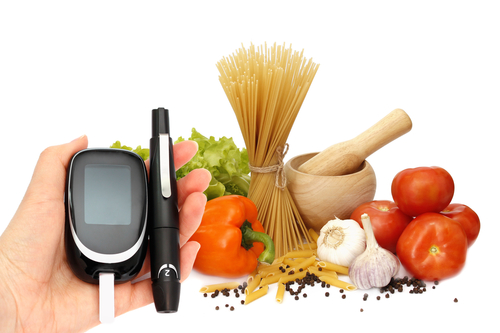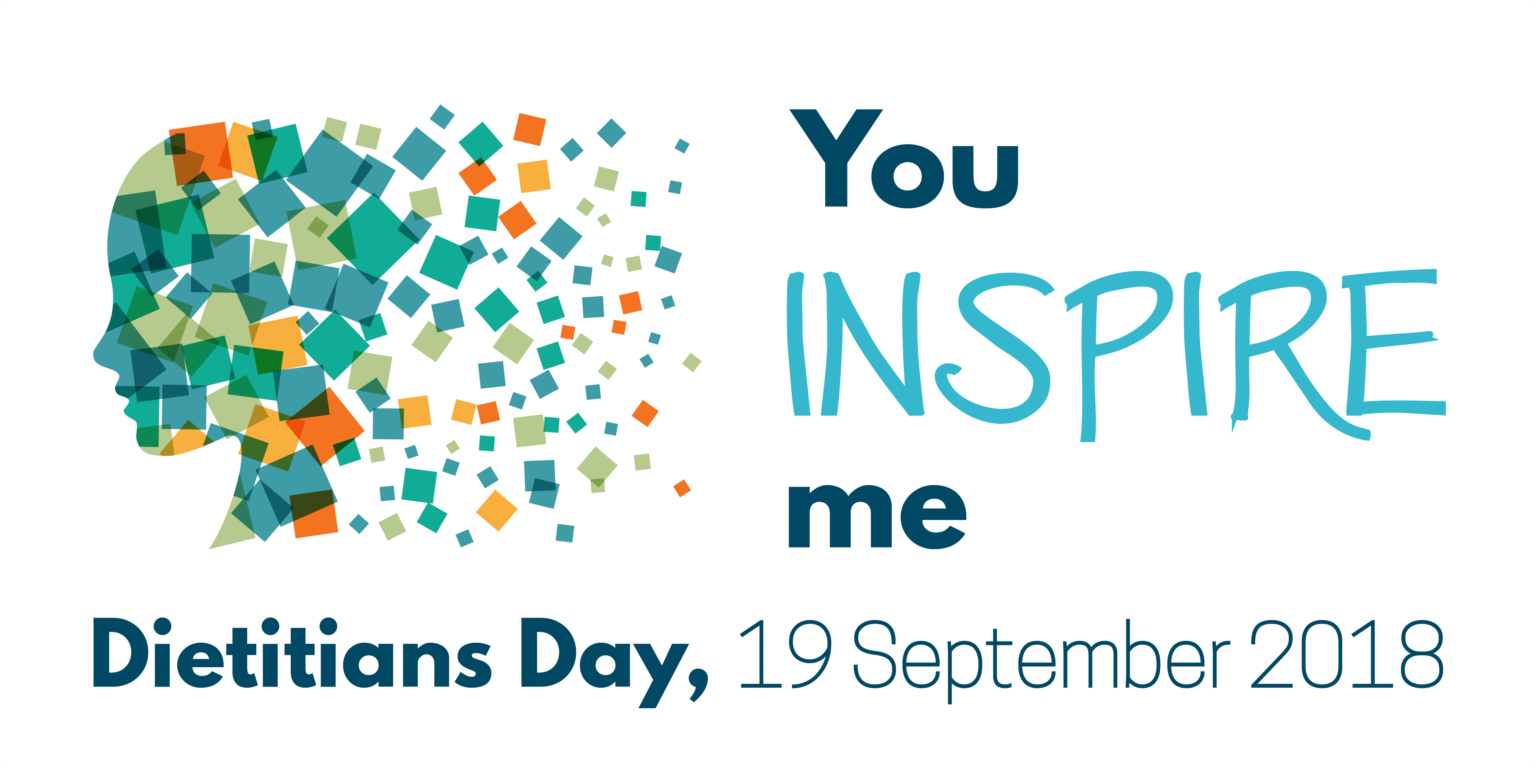PEN eNews 8(2) Sept 2018
PEN
® eNews is a monthly e-newsletter shared with the global PEN Community and created to help dietitians position themselves as leaders in evidence-based nutrition practice. In addition, users of the PEN System will find articles on the new evidence, resources and features available and how to maximize one's use of PEN.

What I learned from a jurisprudence module and a mosquito metaphor
I love September. Even though it has been years since I was in a position to be going back to school and my children have also finished their formal education at least for now, I still feel full of anticipation of what the fall will bring. I feel compelled to clean my house and office and organize my closet so that I AM READY for the learning and activities that I always associate with September.
the fall will bring. I feel compelled to clean my house and office and organize my closet so that I AM READY for the learning and activities that I always associate with September.
Bursting with “September-is-almost-here-enthusiasm”, I renewed my efforts to catch up on my inbox. I came across an email from our regulatory college here in Alberta, reminding me that I was due to complete the Jurisprudence Learning Module to retain my license to practice. I will confess that the message had been sitting in my inbox since May, but last Thursday, primed by my “September learning fever”, I sat down to tackle the module.
I could tell right away that whomever had crafted the module, had put a lot of thought into it. The questions were trickier than I remember, and I found that I was intrigued by, and appreciative of, the links to the handbooks, legislative materials and background materials to support the learning. While I consider that I have a pretty good sense of jurisprudence relative to dietetic practice, I enjoyed taking a deeper dive into the topic and I learned a few things that had previously been murky.
This experience of really taking some time to read, learn and think about jurisprudence, made me reflect on another project I tasked myself with last week. It was a big complicated issue with a tight deadline. I spoke with a couple of people well informed on the topic with the hope that they could tell me what I needed to do – they couldn’t; I skimmed a few articles and then set about to develop a plan. Very quickly, I realized this topic was much too emotional and the evidence too uncertain for my quick and somewhat superficial approach. I needed to honour the complexity of the topic with some time and effort rather than give it a quick overview. We’re likely all familiar with the Slow Food movement, I think I needed to embark on a little “Slow Learning” – to slow down and really think about my “issue”; take some time to do some serious reading about it from a couple of different perspectives; reflect; talk with some people familiar with the issue; read some more; reflect some more and then develop my plan.
With all the sound bites of information we are exposed to, we can fool ourselves into thinking we have enough information to act. A PEN user recently shared that she values the tweets and Facebook posts that PEN prepares but doesn’t often have time to go into PEN and really examine the practice questions, key practice points, rationale statements and recommendations. YIKES!
A colleague recommended Seth Godin’s blog to me and I look forward to finding his daily wisdom in my inbox. Today’s post, in three lines, cleverly captured what I’ve been feeling about how to stay well informed amidst the social media storm of information.
“Teaching complicated ideas to people on a phone is like trying to teach geography to a bunch of sugared-up kids who just had a triple espresso, while they are standing on one foot being bitten by a swarm of mosquitos.
There could be a direct correlation between smart phone usage and underinformed mass behavior.
Sometimes it’s worth opening up a laptop and slowing down just a bit.”
My message this fall is, for those of you going back to school: enjoy every moment, take advantage of every learning opportunity and activity, be generous with your fellow students and make time to thank your educators. Those of you not participating in formal education this fall, perhaps treat yourselves to a slower, more complete examination of a topic or issue of interest. Don’t just skim the headlines, read the abstract or text a friend for their take. Permit yourself sufficient time to really dig into a topic that is intriguing or vexing you. You may even find that you experience a little sanctuary by taking a slower more complete examination of a topic in the storm of information that surrounds us. The PEN System has almost 200 knowledge pathways reflecting important or controversial nutrition issues – why not set some time aside and see what the PEN system has to offer! www.pennutrition.com
In this issue of PEN eNews 8(2), we:
- See all the new content the PEN team has been working on all summer and meet some new PEN Global team members
- Learn about important resources to support critical thinking and build skills in critical appraisal
- Shine the light on Sarcopenia and celebrate a knowledge translation award
- Showcase how we’ve made it even easier to find the bottom line recommendations in the PEN system
- Thank our student volunteers
- Remind you about the Raising our Healthy Kids video series
- Continue our series on how PEN is incorporating new diabetes clinical practice guidelines from Canada and the UK
- Are inspired by Dietitians Day in the Asia Pacific region
- Enjoy PEN eNews 8(2)!
Written by:
Jayne Thirsk RD PhD FDC
Director PEN: Practice-based Evidence in Nutrition®
enews@pennutrition.com
PEN
® eNews may contain links to other external websites.
PENnutrition.com is not responsible for the privacy practices or the content of such external websites. Neither Dietitians of Canada, nor any dietetic associations contributing to or licensing the content in Practice-based Evidence in Nutrition: PEN
® endorse the content, products or services on other websites.
Hello, Good-bye - What’s New with the PEN Team
You all met Vanessa in our June 2017 issue of PEN eNews: Wowsers – Now I’m a PEN International Evidence Analyst. Over the summer, Vanessa let us know she was resigning as a PEN Evidence Analyst to take on work with another global initiative. In her resignation letter she gave special acknowledgement to her mentors Judy Bauer and Dawna Royall who were “instrumental in helping me expand my knowledge and skills in evidence-based processes”. I’ll personally miss receiving Vanessa’s cheery notes that accompanied her monthly activity logs where she documented the many contributions to PEN content that she was working on (Eg. pediatric constipation, osteoarthritis, eating disorders, lactose intolerance). As Vanessa became skilled in the GRADE approach to evidence synthesis, she became a mentor to others. The PEN Team thanks Vanessa for her excellent contributions to the PEN database and wishes her the very best.
Stepping into Vanessa’s writing shoes is Natalie Stapleton APD. Natalie has been working with the PEN Team for 3 years, bringing important practice insights, thoughtful recommendations to our international discussions and taking responsibility for PEN content assignments. We are all thrilled to have her expand her role to include evidence analyst. Natalie shared her thoughts on this decision: “I took on the role as I’d love to contribute to the content in PEN as I think it’s such a wonderful resource for dietitians worldwide. I also love a challenge and am looking forward to improving my skills in research, including learning how to use GRADE.”
It’s been several months since Emily Sunderland joined the PEN team as DAA’s PEN administrative person in the critically important international review process. Emily seeks out reviewers from DAA, DNZ and ADSA for updated and new PEN content and then monitors the review process until the content is submitted. Thanks Emily and keep those reviews coming!
Also relatively new to the PEN Global Team is Eleanor Johnstone PG Dip, BSc, RD Policy Officer (Education & Professional Development) for the British Dietetic Association. I invited Eleanor to share a little about herself:
Hi, I’m Eleanor and started working at the BDA in March. I previously worked in a split role which was part-time diabetes and part-time bariatrics. Since starting at the BDA, I’ve been supporting member involvements with NICE guidelines and PEN reviews. I’m currently in the process of setting up a NICE/PEN network of specialists who are interested in research and reviewing nutritional content. I’m also supporting the association to help establish outcomes within dietetic practice. One of my more creative tasks involves creating the monthly research ezine which goes out to all our members and highlights PEN Editor’s picks and trending topics!
Working with PEN has highlighted to me just how passionate the PEN team are. They have made me feel extremely welcome and supported me with getting to know more about PEN. I’ve been surprised at just how much content is on PEN and how practical this can be – background information for a quick reference for an unfamiliar topic right through to practice guidance toolkits with information on the whole model and care process. I’m looking forward to supporting PEN further in the future.

Welcome to Natalie, Emily and Eleanor!
Are We Doing Enough to Prevent Sarcopenia in Older Adults?
Recently, Camila Oliveira and Drs. Carla Prado and Isabelle Dionne were selected as recipients of the Applied Physiology, Nutrition and Metabolism Award for Nutrition Translation. This award was  established by the Canadian Nutrition Society/ Société canadienne de nutrition (CNS-SCN), in conjunction with the editorial staff of the journal of Applied Physiology, Nutrition and Metabolism (APNM), in an effort to recognize excellence in the translation of nutritional knowledge. The theme established for 2017 was “Nutrition and Physical Activity for Healthy Aging”. Submissions were rated based on the topic area and relevance; manuscript outline; statement of novelty, anticipated impact, timeliness of the review; and evidence of author expertise in the topic area. The award manuscript titled “Are Canadian Protein and Physical Activity Guidelines Optimal for the Prevention of Sarcopenia in Older Adults?" was recently published in the journal of APNM (https://doi.org/10.1139/apnm-2018-0141).
established by the Canadian Nutrition Society/ Société canadienne de nutrition (CNS-SCN), in conjunction with the editorial staff of the journal of Applied Physiology, Nutrition and Metabolism (APNM), in an effort to recognize excellence in the translation of nutritional knowledge. The theme established for 2017 was “Nutrition and Physical Activity for Healthy Aging”. Submissions were rated based on the topic area and relevance; manuscript outline; statement of novelty, anticipated impact, timeliness of the review; and evidence of author expertise in the topic area. The award manuscript titled “Are Canadian Protein and Physical Activity Guidelines Optimal for the Prevention of Sarcopenia in Older Adults?" was recently published in the journal of APNM (https://doi.org/10.1139/apnm-2018-0141).
Sarcopenia is a condition characterized by the loss of muscle mass and strength observed with aging and is associated with loss of physical disability, falls, fractures, frailty, poor quality of life, and increased health care costs. In the manuscript, the authors discuss that sedentary lifestyle, poor dietary patterns and increased life expectancy will dramatically impact the prevalence of this condition in the next decade. The International Classification of Diseases (ICD) recently recognized sarcopenia as a disease, giving it an ICD-10-CM code (M62.84). This fact highlights the importance of this condition, which has been somewhat less investigated in Canada compared to other countries.
Although sarcopenia is a multifactorial syndrome, increased consumption of dietary protein and adequate physical activity levels, especially resistance exercise, can counteract the trajectory of this condition. Canadian guidelines for protein intake and physical activity were last updated in 2005 and 2011, respectively, and new evidence on sarcopenia diagnosis, prevention and treatment is rapidly evolving. Therefore, current guidelines do not reflect recent knowledge on sarcopenia prevention.
Protein recommendations are set as “one-size-fits-all” for both young and older adults. Recent evidence demonstrates that current recommendations are insufficient to meet the minimum protein requirement to counteract muscle loss and to stimulate muscle growth in healthy older adults. Beyond quantity, protein quality is also essential to benefit muscle anabolism. The ability of protein sources to influence muscle growth depends mainly on its essential amino acids’ content, especially leucine. These amino acids are building blocks of protein that must be supplied by the diet. Therefore, guidelines should consider not only how much protein older adults need to eat, but also which protein source this population group should choose. In terms of physical activity, resistance exercise training is a potential strategy to counteract age-related effects as it can elicit muscle growth in addition to increases in muscle strength and function in older adults. Canadian physical activity guidelines should be revised to include details on how this modality of training should be performed. The gap between current guidelines and the latest evidence on the maintenance and promotion of older adult’s health highlight the need for updated protein and physical activity recommendations.
Team involved:
-
Camila Oliveira, MSc, is a PhD Candidate in Nutrition and Metabolism at the University of Alberta under Dr. Carla Prado supervision. Her research project focuses on the physiological effects of high-protein diets in individuals with normal and excessive body weight.
-
Dr. Carla Prado, PhD, RD, is an Associate Professor, a Campus Alberta Innovate Chair in Nutrition, Food and Health and a CIHR New Investigator. Dr. Prado is an expert in body composition research and a member of the Body Composition Clinical Guidelines team for the American Society for Parenteral & Enteral Nutrition.
-
Dr. Isabelle Dionne, PhD, is the first chair holder of the Canada’s Research Chair on Exercise Recommendations for Healthy Aging. Dr. Dionne has extensive experience with sarcopenia research and its biological, physiological and clinical causes. She is one of the investigators of the Nutrition as a Determinant of Successful Aging (NuAge) study conducted in Quebec.
Congratulations Camilla, Carla and Isabelle! We look forward to incorporating your practice questions related to sarcopenia into the PEN System.
A new Look for Practice Questions in PEN®

The PEN® Team is always looking for ways to make PEN better and more useful for PEN users. We recently made changes to the Key Practice Point (KPP) part of the Practice Questions (PQ). We will be using a new KPP format going forward. Instead of having Evidence Synthesis and Practice Guidance sections, there will now be Recommendation, Evidence Summary and an optional Remarks sections. We believe that this change will better meet the needs of our users by providing the bottom line first, a brief description of the evidence and then remarks, as needed, to provide context. The remaining sections of the PQ (Evidence Statements, Comments, Rationale, References) will stay the same.
A couple of examples of this new format can be viewed in the following Practice Questions:
- What effect do tropical oils (palm oil and coconut oil) have on blood lipids? Click here.
- Do infants aged six to 12 months who are introduced to solids using the baby-led weaning (BLW) technique (i.e. infants self-fed with finger food) compared to infants who are introduced to solids using the traditional spoon-fed (TSF) method (with gradual texture progression) have any differences in growth and/or developmental patterns? Click here.
At present, there are still KPPs in the older format, but as this content is updated, the KPPs will be switched to this newer format. This change was made based on user feedback and, as always, we welcome your comments, questions and suggestions!
Written by:
Heather Alaverdy, PEN Editor
Dawna Royall, PEN Senior Evidence Analyst
About the Raising Our Healthy Kids Videos
 Raising Our Healthy Kids is a series of short and snappy 1-2 minute videos providing information to parents and care providers on healthy growth and development of children up to 12 years of age. The videos provide information on general nutrition, active play, healthy growth and development including positive body image and understanding how marketing affects choices and food intake.
Raising Our Healthy Kids is a series of short and snappy 1-2 minute videos providing information to parents and care providers on healthy growth and development of children up to 12 years of age. The videos provide information on general nutrition, active play, healthy growth and development including positive body image and understanding how marketing affects choices and food intake.
These award winning videos can be freely shared and used as teaching resources and discussion generators. You can:
- show them in a waiting room or clinic area
- add them to hospital/agency TV channels and/or website, and
- email them to your clients.
Highlights:
- There are 70 videos in total on a variety of healthy living topics.
- 26 videos are specifically related to nutrition, with 25 of these translated into French.
- The videos were created by health professionals, are evidence-based and national in scope.
What topic areas do the videos cover?
The videos cover a number of topic areas and they have been divided into 11 channels:
- Aboriginal Health
- Supporting Emotional Wellness
- Supporting Healthy Development
- Supporting Healthyz Attachment
- Infant Nutrition
- Literacy
| - Media Literacy and Food Marketing
- Oral Health
- Play and Physical Activity
- Preschool Nutrition
- School Age Nutrition
|
You can access the videos from:
FAQs
As a professional, do I need permission to use and distribute the videos?
You are free to use these videos in any way you can to help families’ live healthier lives. They are free from branding and bias. You do not need to ask permission to use them, nor do you need to write any form of acknowledgement. The videos were created to be used to help families with children with the ‘red tape’ removed for easy use and dissemination.
The content of the videos is national in scope and is consistent with messages from Health Canada, Public Health Agency of Canada, Alberta Health Services, and nutrition messages are consistent with PEN: Practice-based Evidence in Nutrition®.
Who developed the videos?
The videos were developed by a multi-stakeholder group including Dietitians of Canada and Alberta Health Services and with input from a pediatrician and community stakeholders across Canada.
Where did funding come from:
Funding was provided by Government of Alberta, Calgary Health Trust, and Canadian Institutes of Health Research, and the videos were produced by Shadow Light Productions. Financial support for French translations was provided by EatRight Ontario.
Written by:
PEN® Resource Managers:
Jane Bellman MEd, RD
Kerri Staden BSc, RD
jane.bellman@dietitians.ca
kerri.staden@dietitians.ca
I've learned that you shouldn't go through life with a catcher's mitt on both hands; you need to be able to throw something back.
Maya Angelou
The PEN team is very appreciative of four students/new graduates who stepped up to assist us  in a variety of ways this summer. Incorporating new clinical practice guidelines on diabetes, updating handouts, preparing background documents, gathering statistics to inform our strategies are just some of the tasks they accomplished for us. Alison Bennett, Roselle Yuen, Sahar Qassem, Cristina Benea - thank you for giving back to the profession. The PEN Team extends best wishes to each of you as you pursue your careers in dietetics.
in a variety of ways this summer. Incorporating new clinical practice guidelines on diabetes, updating handouts, preparing background documents, gathering statistics to inform our strategies are just some of the tasks they accomplished for us. Alison Bennett, Roselle Yuen, Sahar Qassem, Cristina Benea - thank you for giving back to the profession. The PEN Team extends best wishes to each of you as you pursue your careers in dietetics.
Still looking for feedback! PEN® eNews is turning 7 – tell us what type of articles work for you!
Happy birthday, PEN® eNews! Today’s issue marks seven years of articles dedicated to positioning dietitians and nutritionists as leaders in evidence-based practice, enhancing critical appraisal skills and optimizing the value of PEN for our users. 
From the beginning, PEN® eNews has been a free, bimonthly newsletter. We currently have over 13,498 international subscribers. Most of Volume 1 had a magazine-like format, but after that switched to the searchable, tagged article, scrolling webpage format that is still in use today. Over the years, some sections have stayed the same (e.g. thought-provoking editorials, What’s New in PEN®?, How Do I…, Thank You to Our PEN® Volunteers) whereas other sections have evolved (e.g. PEN® Insider, Surprising Findings).
We recognize that not all of our PEN® eNews readers have been subscribers since the beginning. Why not take a peek at some of our most read issues?
● Vol. 1, Issue 1: https://www.pennutrition.com/pdf/NewsletterSpring2011.pdf
● Vol. 2, Issue 5: https://www.pennutrition.com/enews.aspx?id=10
● Vol. 4, Issue 1: https://www.pennutrition.com/enews.aspx?id=27
● Vol. 5, Issue S: https://www.pennutrition.com/enews.aspx?id=43
● Vol. 6, Issue 4: https://www.pennutrition.com/enews.aspx?id=54
Throughout the past seven years, one thing is certain: the PEN® Global team is always looking for ways to improve what we do and how we do it and this includes PEN eNews. Times have changed since our first issue was published in June 2011 and we’re wondering if it’s time for PEN® eNews to change too. Does the format need to be tweaked? Should the frequency change? Are the issues too long? Are we missing critical content area? Should we convert PEN® eNews to a blog?
Have your say! Please complete our short survey to help us make PEN eNews even better.
Written by
Noor Naqvi and Mary Anne Smith
PEN Evidence Analysts
New Diabetes Clinical Practice Guidelines - Views from Opposite Sides of the Pond: Part 2
The PEN® System has a vast collection of knowledge pathways covering the nutrition care process of many clinical conditions and their nutritional management. Fourteen of the 197  knowledge pathways in PEN are diabetes-specific and are currently in the process of being updated to reflect the newly released UK and Canadian diabetes clinical practice guidelines, with help from contributors from Australia, Canada and the UK. While these knowledge pathways are being updated, Dietitians of Canada and the British Dietetic Association are collaboratively condensing various parts of the UK and Canadian updated diabetes guidelines for you, and in true PEN® style, translating the evidence into practical advice. These joint submissions are/will be featured in past, current and future PEN® eNews issues. The last article focused on type 2 diabetes, remission and obesity. This issue will focus on diabetes prevention.
knowledge pathways in PEN are diabetes-specific and are currently in the process of being updated to reflect the newly released UK and Canadian diabetes clinical practice guidelines, with help from contributors from Australia, Canada and the UK. While these knowledge pathways are being updated, Dietitians of Canada and the British Dietetic Association are collaboratively condensing various parts of the UK and Canadian updated diabetes guidelines for you, and in true PEN® style, translating the evidence into practical advice. These joint submissions are/will be featured in past, current and future PEN® eNews issues. The last article focused on type 2 diabetes, remission and obesity. This issue will focus on diabetes prevention.
Diabetes prevention is of great interest to individuals at risk of developing diabetes, health care providers and researchers. Diabetes (type 1 and 2) caused 1.6 million deaths worldwide in 2015 (1). It is estimated that currently almost 1 million people in the U.K. are unknowingly living with diabetes, as they have not yet been diagnosed (2). In Canada, it is estimated that 11 million people are living with diabetes or pre-diabetes (3). The challenges for individuals with diabetes and the health care system that supports them are huge, making prevention critical.
In the past, type 2 diabetes may have been viewed by some as part of the aging process; however, the Diabetes Prevention Programme (DPP) highlighted that this was not the case (4). The DPP was the first of its type to show that lifestyle changes or metformin could effectively reduce the risk of developing type 2 diabetes in adults at high risk compared to a placebo. The lifestyle intervention reduced the risk of diabetes by 58% and metformin by 31% compared with the placebo.
Eating habits are an essential part of lifestyle. There are few RCTs measuring the effect of specific eating patterns/specific foods on the risk of developing diabetes – this is largely due to the logistical difficulties in randomizing people to a specific diet until they do/do not develop diabetes. For this reason, the majority of the research in this area is prospective cohort studies.
Diabetes UK Guidelines
This section focuses on recommendations from the Diabetes UK guidelines (5) (written by UK dietitians and reviewed by national and international diabetes experts). Key nutrition and physical activity recommendations from these guidelines are as follows:
- The risk of diabetes is seven times greater in obese people compared to those with a healthy BMI (6). There is also an increased risk of developing diabetes at a younger age and lower BMI in South Asian and Chinese populations (7). Weight loss of at least 5% (where appropriate) is recommended to reduce the risk of type 2 diabetes in high risk groups.
- There is no specific diet recommended to promote this weight loss, the important aspects are making sure a patient-centred approach is used and that it is sustainable for the individual. Culturally tailored, multi-component lifestyle interventions are recommended to reduce the risk in ethnic minorities.
- A reduced risk has been found with several dietary patterns (Mediterranean, DASH, Nordic and vegetarian, but not pescovegetarian) (5). It is important to consider how likely it is that an individual with diabetes will be able to achieve/adhere to the dietary pattern.
- The guidelines (5) suggests following UK physical activity recommendations (8):
- 150 minutes of moderate intensity (10-minute bouts or more) or 75 minutes of vigorous intensity per week
- muscle strengthening two days a week
- minimizing the amount of time sitting.
Key Messages for Diabetes Prevention - Diabetes CanadaThis section focuses on recommendations from the Diabetes Canada guidelines (9). Key nutrition and physical activity recommendations are as follows:
- A structured program of healthy behaviour interventions including moderate weight loss and regular physical activity for those with prediabetes is recommended.
- The Mediterranean style, DASH and AHEI (Alternate Healthy Eating Index) dietary patterns are recommended for individuals at risk of type 2 diabetes as a risk reduction strategy.
- Recognizing the important role that increased levels of physical activity can play in diabetes risk reduction, Canadian clinical practice guidelines for individuals with pre-diabetes recommend a minimum of 150 minutes/week of physical activity accumulated over five days a week. While increased health benefits can be achieved with physical activity even beyond this minimum level, it is a recommendation with a strong evidence base of efficacy in diabetes risk reduction.
Key Messages for the UK and Canada
Although each country applies the evidence to their own unique populations, the key messages in regard to type 2 diabetes prevention are similar (5,9):
- a structured healthy lifestyle program
- weight loss (if needed)
- healthy dietary patterns, which may include Mediterranean and DASH
- regular physical activity.
While ongoing studies and advancing medical procedures continue to offer new insights into the future of prevention and remission of diabetes, dietitians can remain engaged in ongoing efforts with individual clients and at a community level to create healthier places where people live, learn, work and play.
Do you want to support clients to identify their own risk of diabetes? They can do so by answering a few questions here: http://bit.ly/Kn0wYourR1sk
PEN eNews readers are encouraged to access the complete nutrition therapy information at:
UK:
www.diabetes.org.uk/nutrition-guidelines
Canada:
http://guidelines.diabetes.ca/cpg
References
- World Health Organization. Diabetes. 2017. Available from: http://www.who.int/news-room/fact-sheets/detail/diabetes
- Diabetes UK. Position statements and reports: Diabetes prevalence 2017. 2017. Available from: https://www.diabetes.org.uk/professionals/position-statements-reports/statistics/diabetes-prevalence-2017
- Diabetes Canada. Types of diabetes. 2018. Available from: http://www.diabetes.ca/about-diabetes/types-of-diabetes
- Hamman RF, Wing RR, Edelstein SL, Lachin JM, Bray GA, Delahanty L, et al. Effect of weight loss with lifestyle intervention on risk of diabetes. Diabetes Care. 2006;29(9):2102-7. Abstract available from: https://www.ncbi.nlm.nih.gov/pubmed/16936160
- Dyson. P.A, Twenefour. D, Breen. C, Duncan. A, Elvin. E, Goff. L, et al. Diabetes UK evidence-based nutrition guidelines for the prevention and management of diabetes. Diabet Med. 2018; 35(5):541-7. Available from: https://www.ncbi.nlm.nih.gov/pubmed/29443421
- Public Health England. Health Matters: preventing type 2 diabetes. 2018. Available from: https://www.gov.uk/government/publications/health-matters-preventing-type-2-diabetes/health-matters-preventing-type-2-diabetes
- NICE. Promoting health and preventing premature mortality in black, Asian and other minority ethnic groups. Quality standard [QS167]. 2018. Available from: https://www.nice.org.uk/guidance/qs167
- Public Health England. Health Matters: getting every adult active every day. 2016. Available from: https://www.gov.uk/government/publications/health-matters-getting-every-adult-active-every-day/health-matters-getting-every-adult-active-every-day#recommendations
- Diabetes Canada Clinical Practice Guidelines Expert Committee. Diabetes Canada 2018 clinical practice guidelines for the prevention and management of diabetes in Canada. Can J Diabetes. 2018: 42(Suppl 1):S1-S325. Available from: http://guidelines.diabetes.ca/cpg
Written by:
Eleanor Johnstone PG Dip, BSc, RD
Policy Officer (Education & Professional Development)
British Dietetic Association
Catherine Freeze MEd, RD, CDE
PEN Evidence Analyst
Dietitians of Canada
Knowledge Transfer Events and Resources
DAA, together with our neighbours in the Asia Pacific Region, will come together and celebrate our  profession for Dietitians Day, on Wednesday 19 September 2018.
profession for Dietitians Day, on Wednesday 19 September 2018.
This year we have a particular focus on acknowledging individual achievements and how these help to inspire others, with an ultimate goal of achieving better health for all communities – whether that be in Australia or abroad.
Our theme is ‘You inspire me’ and we’re encouraging members to acknowledge their fellow dietitians, either through social media or via an e-card.
Help spread the word on 19 September by liking or sharing any posts you see, or even sending a message to your colleagues down under using our social media toolkit. Access the tool kit and find out more about our Dietitians Day activities via daa.asn.au
Contact Us
Do you have comments, questions or feedback? Please contact us:
Jayne Thirsk RD, PhD, FDC
Director of PEN®
Dietitians of Canada
jayne.thirsk@dietitians.ca
Eleanor Johnstone PG Dip, BSc, RD
Policy Officer (Education & Professional Development)
British Dietetic Association
globalpen@bda.uk.com
Maree Hall APD
Senior Public Relations Manager
Dietitians Association of Australia
prmanagercommunications@daa.asn.au
PEN eNews
September 2018 Volume
8 (2)
A Publication of the PEN® System Global Partners,
a collaborative partnership between International Dietetic Associations.
Learn more about PEN.
Copyright Dietitians of Canada
. All Rights Reserved.